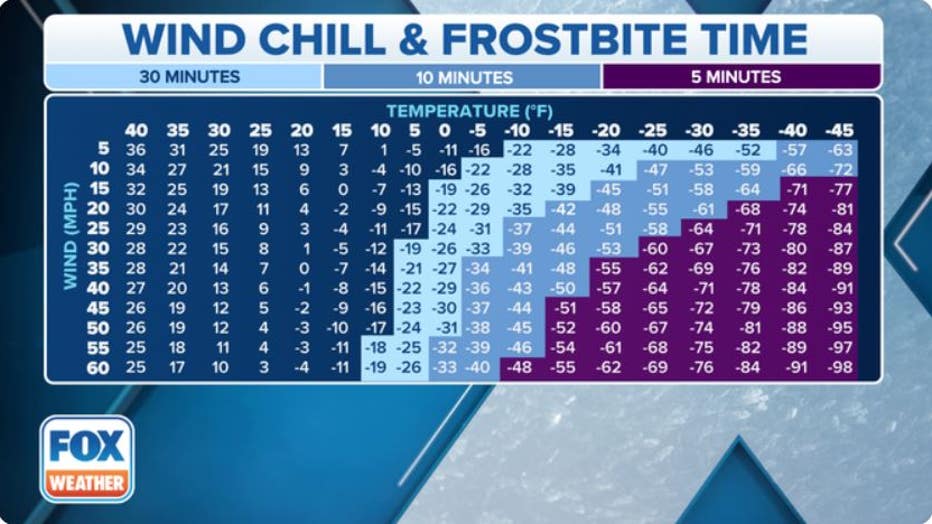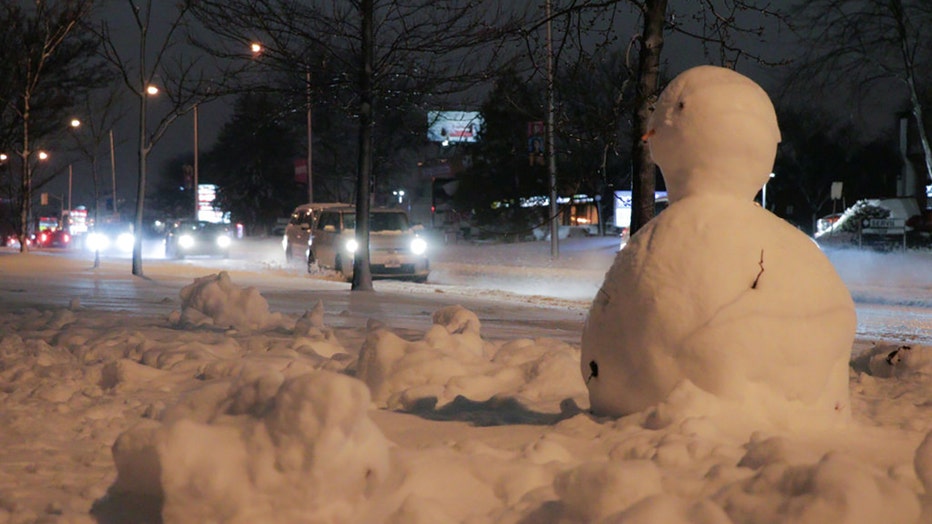What does the wind chill mean and how long can it take to get frostbite?
An explanation of the wind chill. (FOX Weather)
You will often see the term "wind chill" in your weather forecast during the winter, but you might not know what this actually means or how it could affect your health.
The wind chill is how cold the air feels on your skin when factoring in the wind for any temperature at or below 50 degrees with wind speeds above 3 mph. In your FOX Weather app, this is called the "feels-like" temperature.

Mt. Washington sees wind chill of 100 degrees below zero
Video date: Feb. 4, 2023. The coldest place in the U.S., Mt. Washington, New Hampshire, sees the wind chill temperature drop to 100 degrees below zero.
A thin layer of warm air, produced by body heat, exists just above your skin. The wind strips this warmth away. As wind speeds increase, the amount of heat lost from your body also increases. Therefore, the stronger the winds, the colder the air will feel.
When winds are light – 3 mph or lower – the wind chill is not a factor because the thin layer of warm air stays close to your skin.
WHEN IS THE COLDEST TIME OF YEAR?
The National Weather Service developed the chart below to easily determine the wind chill. Simply match the air temperature on the horizontal axis at the top with the wind speed on the vertical axis along the left-hand side, find where the two values intersect, and that number is your wind chill.

The National Weather Service wind chill chart. (FOX Weather)
Since the chart goes in intervals of every 5 degrees and 5 mph, there is also a wind chill calculator available on this NWS webpage if you prefer to find a more precise value.
HOW COLD CAN TEMPERATURES GET DURING THE COLDEST TIME OF YEAR?
On a windy day in the winter, the wind chill will be notably lower than the actual air temperature.
The FOX Weather app might predict a high temperature of 36 degrees – the average high in Boston for much of January – but if the winds are gusting to 30 mph, the wind chill will be 23 degrees. Most people would likely agree that a 23-degree day feels noticeably colder than a 36-degree day.

FILE - A snowman is seen along the walkway as a winter storm hits southern Ontario with heavy snow and strong winds in Toronto, Ontario, Canada, on Jan. 12, 2024. (Photo by Arrush Chopra/NurPhoto via Getty Images)
THESE ARE THE ALL-TIME COLDEST TEMPERATURES EVER RECORDED IN EACH STATE
The blue- and purple-shaded areas in the wind chill chart above indicate how long it takes for frostbite to set in at the corresponding wind chills.
For example, frostbite would occur after only 10 minutes of exposure to a temperature of negative 15 degrees with 20-mph winds.
Get updates to this story on FOXWeather.com.

